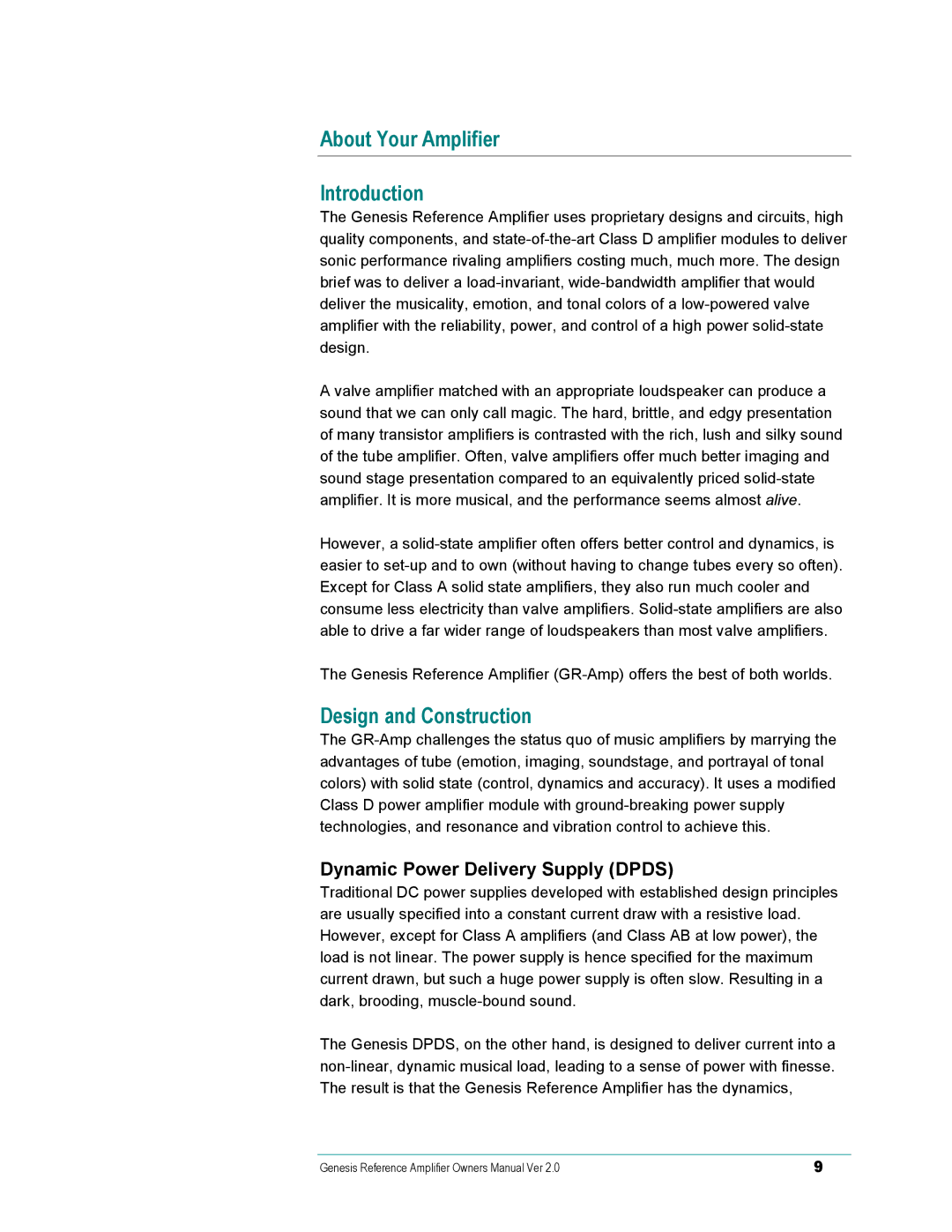Introduction
The Genesis Reference Amplifier uses proprietary designs and circuits, high quality components, and state-of-the-art Class D amplifier modules to deliver sonic performance rivaling amplifiers costing much, much more. The design brief was to deliver a load-invariant, wide-bandwidth amplifier that would deliver the musicality, emotion, and tonal colors of a low-powered valve amplifier with the reliability, power, and control of a high power solid-state design.
A valve amplifier matched with an appropriate loudspeaker can produce a sound that we can only call magic. The hard, brittle, and edgy presentation of many transistor amplifiers is contrasted with the rich, lush and silky sound of the tube amplifier. Often, valve amplifiers offer much better imaging and sound stage presentation compared to an equivalently priced solid-state amplifier. It is more musical, and the performance seems almost alive.
However, a solid-state amplifier often offers better control and dynamics, is easier to set-up and to own (without having to change tubes every so often). Except for Class A solid state amplifiers, they also run much cooler and consume less electricity than valve amplifiers. Solid-state amplifiers are also able to drive a far wider range of loudspeakers than most valve amplifiers.
The Genesis Reference Amplifier (GR-Amp) offers the best of both worlds.
Design and Construction
The GR-Amp challenges the status quo of music amplifiers by marrying the advantages of tube (emotion, imaging, soundstage, and portrayal of tonal colors) with solid state (control, dynamics and accuracy). It uses a modified Class D power amplifier module with ground-breaking power supply technologies, and resonance and vibration control to achieve this.
Dynamic Power Delivery Supply (DPDS)
Traditional DC power supplies developed with established design principles are usually specified into a constant current draw with a resistive load. However, except for Class A amplifiers (and Class AB at low power), the load is not linear. The power supply is hence specified for the maximum current drawn, but such a huge power supply is often slow. Resulting in a dark, brooding, muscle-bound sound.
The Genesis DPDS, on the other hand, is designed to deliver current into a non-linear, dynamic musical load, leading to a sense of power with finesse. The result is that the Genesis Reference Amplifier has the dynamics,
